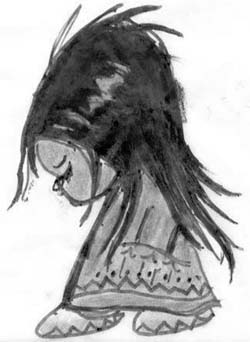 Sarojini Naidu, Kalpana Chawla, Indra Noyi, Chanda Kochar, PT Usha, Bachendri Pal, Sania Mirza are some names that have made country proud in their respective fields. One can see females excelling in the corporate world, engineering and medical professions through women empowerment.
Sarojini Naidu, Kalpana Chawla, Indra Noyi, Chanda Kochar, PT Usha, Bachendri Pal, Sania Mirza are some names that have made country proud in their respective fields. One can see females excelling in the corporate world, engineering and medical professions through women empowerment.
 Even in Board exams or any other competitive exams, girls mostly surpass boys. Gone are the days when the females were considered as a weaker sex, dependent on the opposite sex at every stage of their life; as a child on father, as an adolescent on brother, as an adult on husband and when old, on son. Instead, they are strongest pillar of the family with every member dependent on them.
Even in Board exams or any other competitive exams, girls mostly surpass boys. Gone are the days when the females were considered as a weaker sex, dependent on the opposite sex at every stage of their life; as a child on father, as an adolescent on brother, as an adult on husband and when old, on son. Instead, they are strongest pillar of the family with every member dependent on them.
But there are people who still exist considering girl as a burden, either because of dowry, posterity or social status. This mindset has given rise to Female Foeticide which is a critical concern especially in India.
In the age group 0-6 years, female child sex ratio consistently shows a sharp declination, from 962 in 1981 to an alarmingly ratio, as low as 914 in 2011. The drop has largely been attributed to sex-selective abortions in some parts of the country and majorly in the cities. In India, 682,000 female foetus were destroyed between 2001 and 2005, horribly accounting as 1800 to 1900 every day.
“There is no point in spending money on the education and nutrition of the girls as they are not going to pay back for it in future because they will be gone to someone else house after marriage. And also, when they will be married, it requires huge expenditure. Boy brings name, fame and money in the family, he will take our family name and generation forward” – mentality of some of the Indian Families irrespective of caste and status.
Literacy and economic status do not necessarily guarantee a positive child sex ratio. Shockingly, sex-selective abortion is higher among the well off, educated and predominantly urban class for social status and posterity.
Foetus are found lying in farms, floating on rivers, wrapped in jute bags and thrown in the dustbins are some of the common pathetic sights. It seems the struggle for a girl starts from the day, her existence is known in her mother’s womb.
Despite these horrific numbers, foetal sex determination and sex selective abortion by unethical medical professionals has today grown into a Rs. 1,000 crore industry (US$ 244 million). Social discrimination against women has already been serious issue in Indian society which has been further spurred by technological developments. Today, mobile sex selection clinics drive into almost any village or neighbourhood that goes unchecked and unsanctioned.
Do we still need to wait to change our mind-set towards female population in India? Zero tolerance is what is needed.
PCPNDT Act 2003 :
The Preconception and Prenatal Diagnostic Techniques (Regulation and Prevention of Misuse) Act, PCPNDT Act 2003, prohibits sex selection and regulates prenatal diagnostic techniques and the prevention of their ‘misuse for sex determination leading to sex-selective abortion’. However, it is very difficult to enforce and prevent the deliberate misuse of medical technology for the elimination of girls on such a large scale. PCPNDT Act has been into force for all these years and the sex-ratio in India is still falling.
http://khushi-